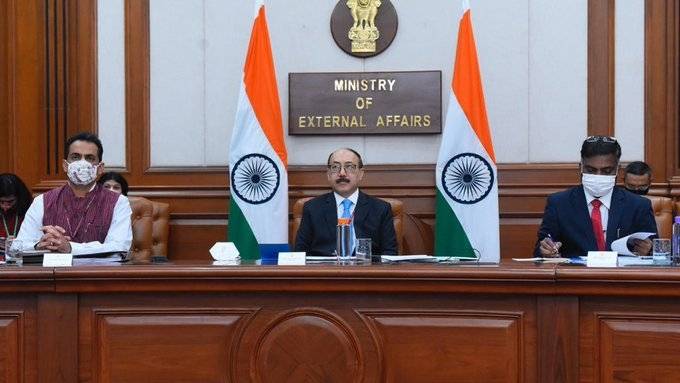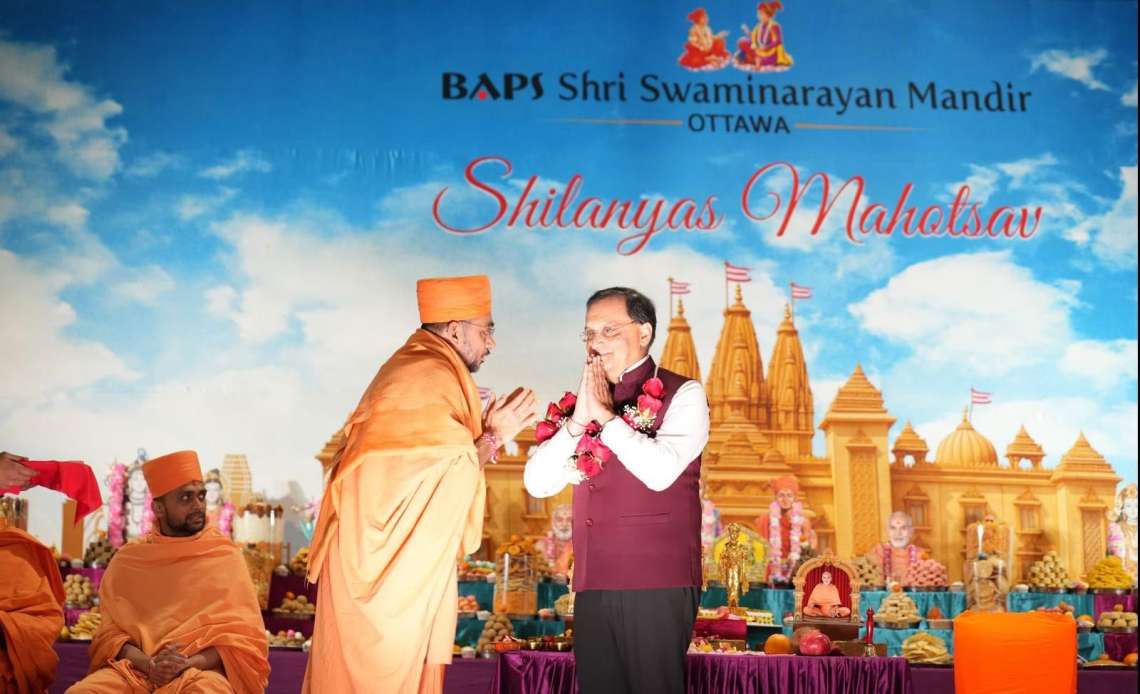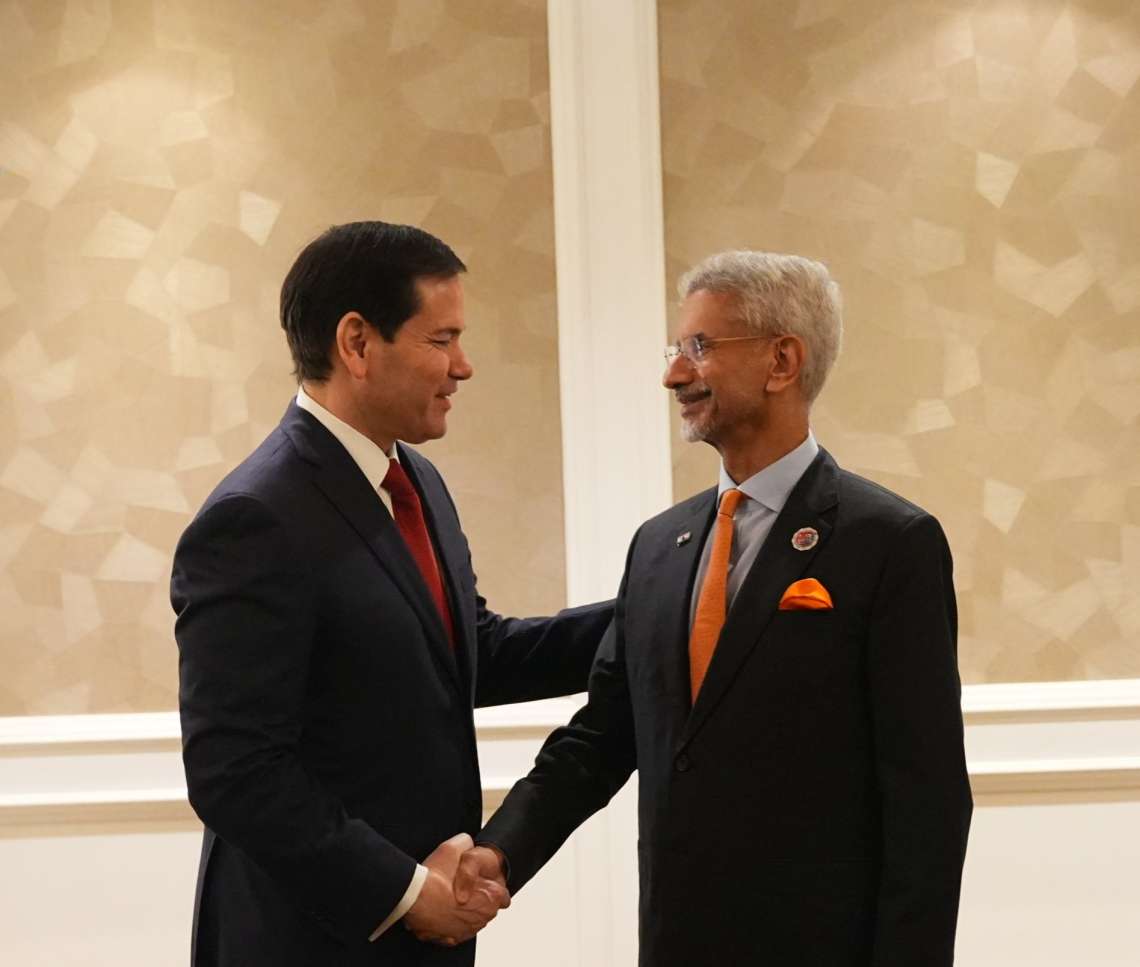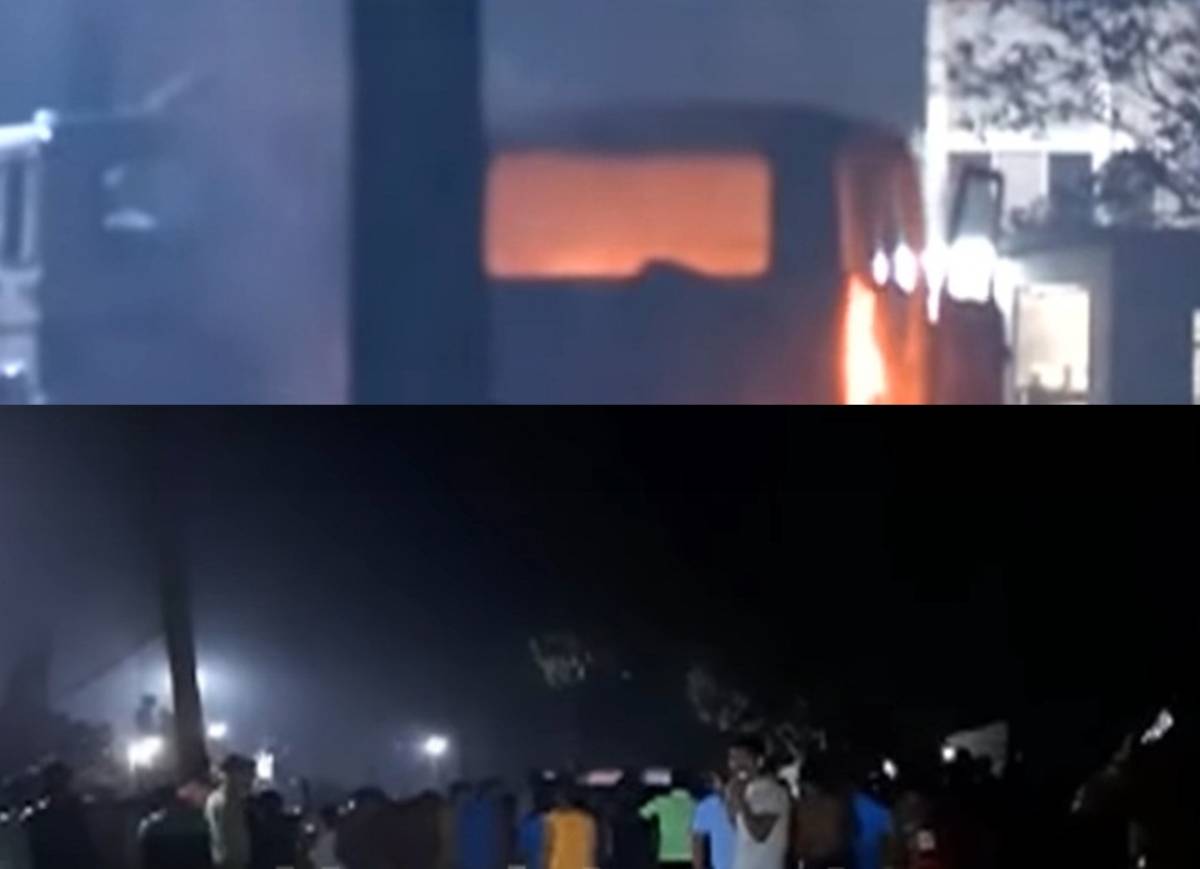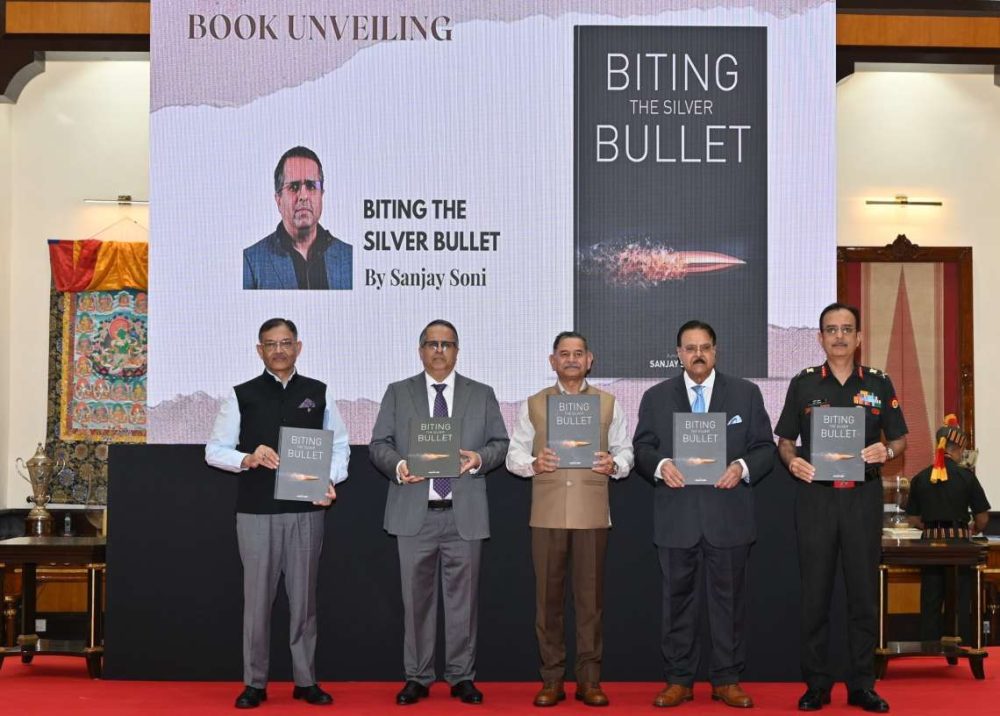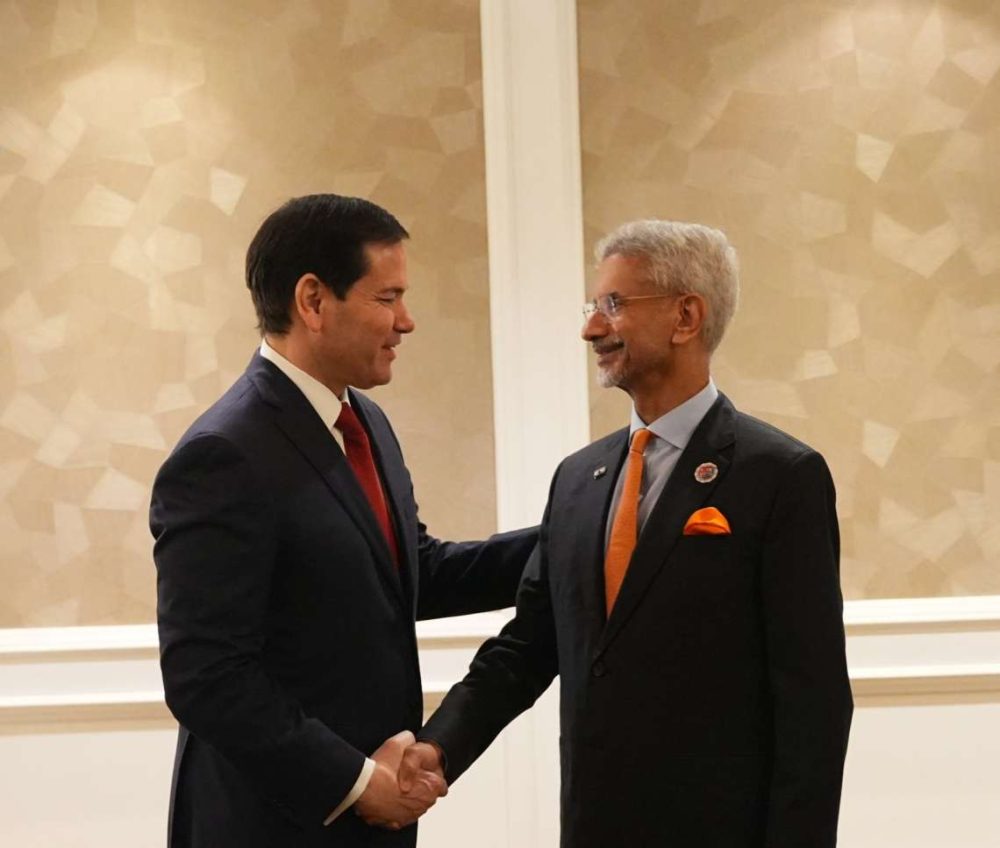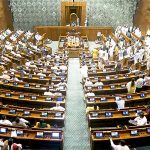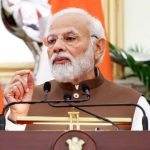Tangkhul Nagas of NSCN (IM) leader Thuingaleng Muivah have substantial presence in Manipur, which again goes to the polls by February-March along with Uttar Pradesh, Punjab, Uttarakhand and Goa. …reports Nirendra Dev
Things have perhaps started falling in their places. Have they?
Close on the heels of Foreign Secretary Harsh V Shringla taking up with Myanmar’s military rulers on the now infamous Churachandpur ambush in Manipur, Union Home Minister Amit Shah held a crucial late night meeting with Chief Ministers of Assam and Nagaland Himanta Biswa Sarma and Neiphiu Rio, respectively.
Home Minister Shah is likely to brief Prime Minister Narendra Modi on his talks with the northeastern leaders especially in the context of security implications in taking any decision on AFSPA.
Assam Chief Minister Sarma has favoured continuing with the enforcement of AFSPA in his state.
Recently, RSS leader Indresh Kumar told reporters that even in Kashmir the deployment of forces were automatically minimised once situation improved and the Article 370 was abrogated.
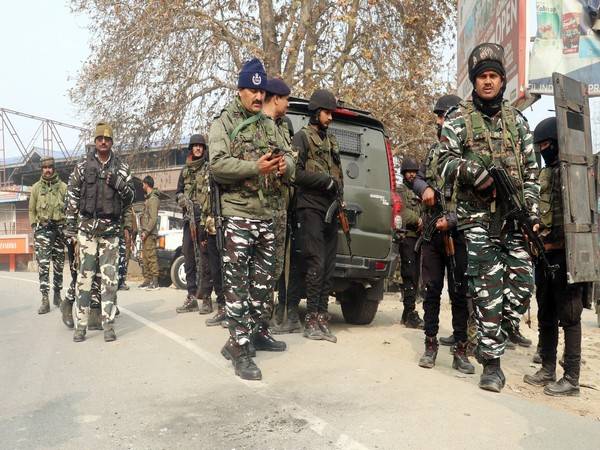
Sources close to the NNPGs, an umbrella of 7 militant groups, leadership have said only a final peace pact can bring a ‘natural end’ to all controversies pertaining to AFSPA and deployment of security forces in Nagaland and other Naga inhabited areas.
Tangkhul Nagas of NSCN (IM) leader Thuingaleng Muivah have substantial presence in Manipur, which again goes to the polls by February-March along with Uttar Pradesh, Punjab, Uttarakhand and Goa.
BJP floor leader in Nagaland and Deputy Chief Minister Y Patton and a former Chief Minister T.R. Zeliang (of NPF) were also present in the meeting with Shah. Patton is also the state Home Minister and a section of BJP leaders in Delhi were not impressed with his performance especially in the context of Oting shooting down.
The deliberations between Shah and northeastern leaders were vital as these took place days after the Nagaland assembly adopted a resolution for repeal of the Armed Forces Special Power Act (AFSPA).
The summoning of the leaders from Nagaland especially on the eve of Christmas and their arrival in the capital along with Assam Chief Minister and NEDA convener Himanta Biswa Sarma signified that talks were sensitive and essential.
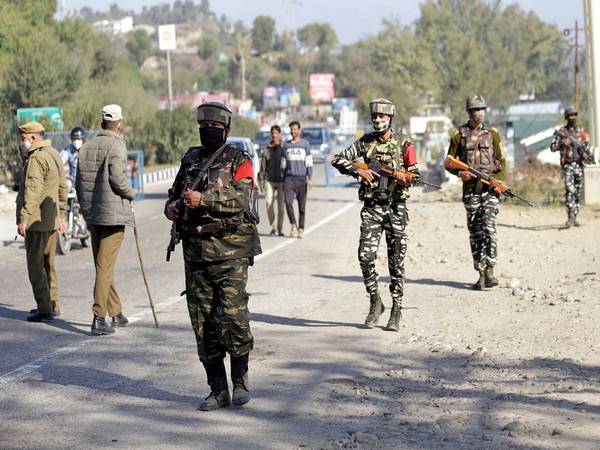
The meeting between Shah and the northeastern leaders took place within hours India’s Foreign Secretary Harsh Vardhan Shringla on a two-day visit to Myanmar raised matters relating to India’s security with Myanmar military rulers especially in the light of the “recent incident in Churachandpur” district in southern Manipur.
The ambush on November 13 claimed the lives of Col Viplab Tripathi, his wife and nine-year-old boy and four jawans. Subsequently, the killing of Naga civilians by security forces in Mon district in a botched up anti insurgency operation has now led to demand for the withdrawal of the AFSPA from Nagaland.
“Entire Naga society has been calling for repeal of AFSPA and that voice is at its loudest today,” said Nagaland Chief Minister Neiphiu Rio on December 20 while piloting forcefully an official resolution in the Assembly seeking immediate repeal of the controversial law that gives some impunity to armed forces.
Assam Chief Minister Sarma for his part, however, said AFSPA will continue in his state. The argument being the withdrawal of AFSPA cannot be a call of the government alone. It has to depend on the overall situation, law and order situation of the state.
“Now suppose I withdraw, will that be reciprocated by the militant organisations?” he said in Guwahati a few days back.
The Oting killing of Konyak Naga civilians and subsequent violence in Mon town on December 5 have led to the demand for withdrawal of the AFSPA, considered an essential piece of legislation for army operations in north east and in Jammu and Kashmir.
In the Churachandpur ambush on November 13, one colonel Viplab Tripathi, his wife and nine-year boy were killed along with four jawans. Six others were injured when PLA and little known Manipur Naga People’s Front militants attacked the forces at Behiang in Churachandpur district.
Aprehensions were expressed in certain quarters that Oting killing and subsequent developments could even lead to derailment or stalling of the hard-owned Naga peace talks that had begun in August 1997.
The Oting killing of Konyak Naga civilians and subsequent violence in Mon town on December 5 have led to the demand for withdrawal of the AFSPA, considered an essential piece of legislation for army operations in north east and in Jammu and Kashmir.
In the Churachandpur ambush on Nov 13, one colonel Viplab Tripathi, his wife and nine-year boy were killed along with four jawans.
Six others were injured when PLA and little known Manipur Naga People’s Front militants attacked the forces at Behiang in Churachandpur district.
Apprehensions were expressed in certain quarters that Oting killing and subsequent developments could even lead to derailment or stalling of the hard-owned Naga peace talks that had begun in August 1997.
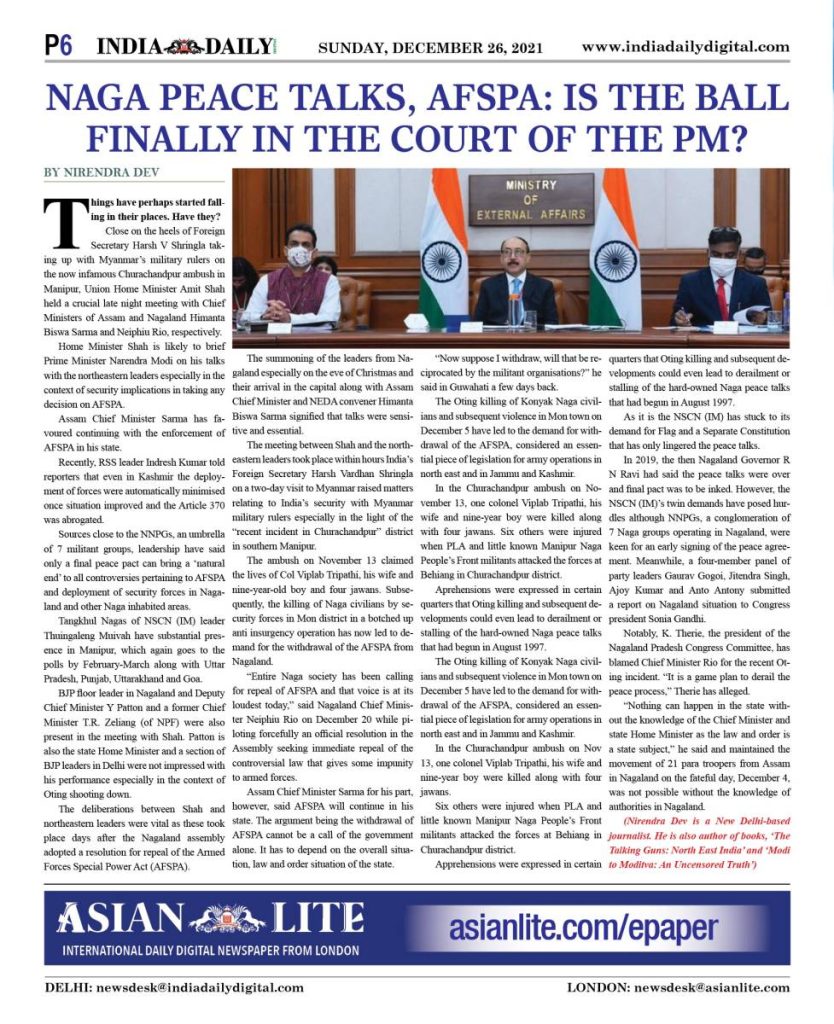
As it is the NSCN (IM) has stuck to its demand for Flag and a Separate Constitution that has only lingered the peace talks.
In 2019, the then Nagaland Governor R N Ravi had said the peace talks were over and final pact was to be inked. However, the NSCN (IM)’s twin demands have posed hurdles although NNPGs, a conglomeration of 7 Naga groups operating in Nagaland, were keen for an early signing of the peace agreement.
Meanwhile, a four-member panel of party leaders Gaurav Gogoi, Jitendra Singh, Ajoy Kumar and Anto Antony submitted a report on Nagaland situation to Congress president Sonia Gandhi.
Notably, K. Therie, the president of the Nagaland Pradesh Congress Committee, has blamed Chief Minister Rio for the recent Oting incident. “It is a game plan to derail the peace process,” Therie has alleged.
“Nothing can happen in the state without the knowledge of the Chief Minister and state Home Minister as the law and order is a state subject,” he said and maintained the movement of 21 para troopers from Assam in Nagaland on the fateful day, December 4, was not possible without the knowledge of authorities in Nagaland.
(Nirendra Dev is a New Delhi-based journalist. He is also author of books, ‘The Talking Guns: North East India’ and ‘Modi to Moditva: An Uncensored Truth’)


